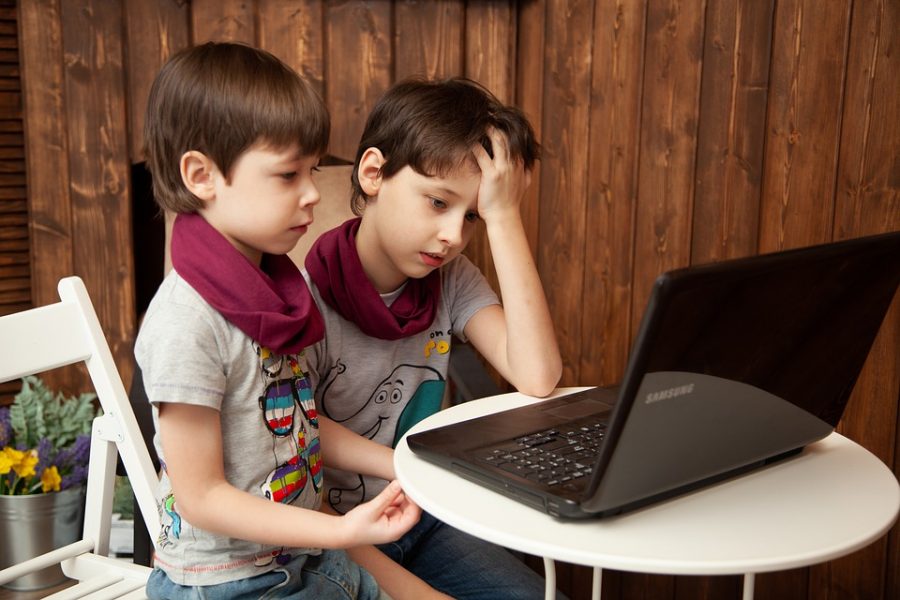How Will ‘COPPA’ Change How You Use the Internet?
April 13, 2020
2006 was a fascinating year for Youtube. It was still an independent company, amassing a total of 100,000 views was considered viral, and cat videos were a genre of content. Now owned by Google, 100,000 views is nothing special, and there is such a diverse variety of videos that Youtube has even become the primary form of entertainment for many people. Whenever something is on the internet, it’s bound to change. The latest change, concerning the Children’s Online Privacy Protection Act (COPPA), might be a landmark shift we won’t forget.
The change in COPPA will strongly affect everyone. COPPA is the rule that controls ads targetting children. A recent change has to directed that contributors now need to label whether their content is intended for children. If they mislabel their ads, they will get fined. Advertisers will make less money because they won’t be able to target ads. There are a variety of reasons for this loss in revenue, as people won’t want to click on the company’s ads. Youtubers will lose tons of money and might be fined $42,350 for each video that is not for kids but is mislabeled as such. The viewer might not be able to see new content they want to watch. However, the intentions of COPPA are good. The rule is meant to keep advertisers from collecting children’s data. Two main questions then arise: Will the change effectively stop the problem of collecting unaware children’s data? And, will children benefit from this change in COPPA?
What was Youtube like before COPPA? Stephanie Humphrey, a tech and social media expert from the program Til Death Do You Tweet says, “Youtube has always been very problematic, but, I will say that when you’re talking about the volume of content they have to sift through, I won’t call it unrealistic but it is really tough to moderate content on a platform that is literally getting millions of hours of content every day.” What happens if a random eighth-grader in Delaware uploads a Youtube video? Is it reasonable to expect them to deem it “appropriate” to kids or not? Is the task force of Youtube robust enough to ensure that the website remains a safe domain for children?
The key to understanding COPPA, though, is to recognize that it is not about the videos children post, but the advertisements they receive. An argument against COPPA is the lack of necessity thereof, due to programs such as AdBlocker. In a conversation about the appropriateness of ads and the need for programs such as COPPA, Katie Bryan ’24 commented, “I was playing an online game and I got underwear ads and I was with my guy friends who were getting Nerf ads.” To some people, therefore, targeted ads can be embarrassing. Youtube gets information by looking at your data, what you watch on their site and others, and try to understand which ads you are most likely to engage with. Try taking a look at your Adsense settings. You might be surprised to see who Google thinks you are and find out what you are being recommended. How much information Google as a corporation has amassed on your behalf might be quite shocking.
The main target of COPPA is the people creating the content. COPPA prevents targeting ads to children under 13. So, if the creators say that their content is for kids, they won’t get personalized ads. Now, whenever someone uploads a video, they have to choose if their content is “for kids” or “not for kids,” However, there are a few conditions when you label content for kids. First, you don’t get targeted ads. Targeted ads are how you make most of your money on Youtube. Also, you have to follow a plethora of rules to keep your video child-appropriate, as you may not have the following: animated characters, child models, toys, or anything similar. Stephanie Humphrey expressed her concerns: “In the background of my videos, I have little toys like a glowing Spider-Man or a Superman clock. Will this mean that Youtube thinks my videos are for kids when they aren’t?” Content creators in the gray area are concerned about labeling content and the consequences.
COPPA poses a problem due to the issues that arise when content is mislabeled. That is precisely why everyone is worried about labeling whether their content is child-appropriate. Every time one mislabels a video, there is the risk of paying a potentially career-ending fine. The best choice is to label something not for kids because through the entire law, it doesn’t say if the fines are reciprocal. However, if you’re worried about being fined, Youtube recommends hiring a lawyer. It is a double-edged: if you label your content for children, and it is not, you will get fined; if you label your content not child-appropriate, you risk losing viewership. Additionally, if you’re a child on Youtube, you just won’t be able to find the video. This is what makes COPPA such a big deal.
For years, Youtube has been a platform on which you could share content and passions. There was a cornucopia of videos concerning any topic you could imagine, for better or for worse. Now, if COPPA affects the website in the way it intends, channels might be shut down, videos will be changed, and content creators will lose money. Katie Bryan asks, “Will my favorite Youtubers go bankrupt?” It is an important question, but we will have to wait and see the results.































